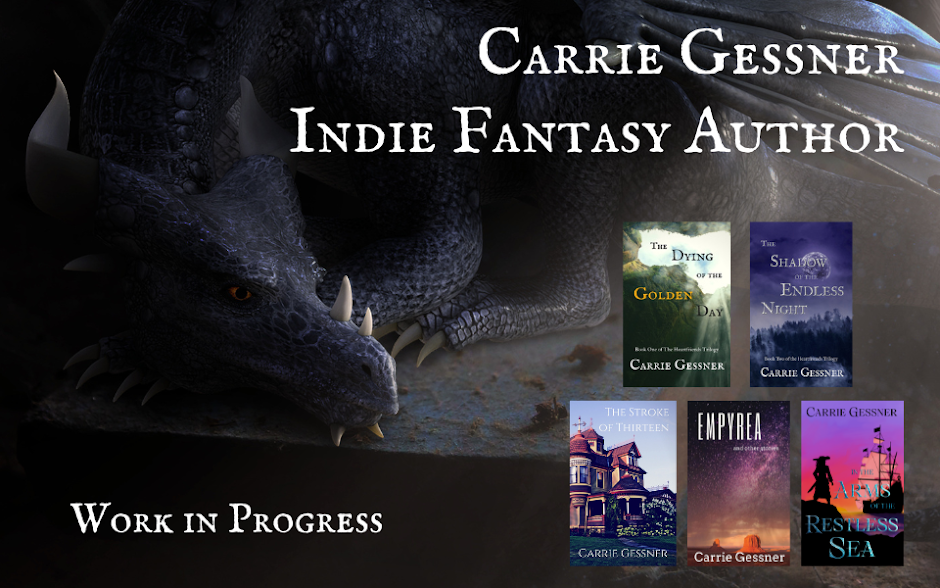Writing advice is weird. Sometimes it works. Sometimes it doesn't. Most times, it just comes down to personal preference. So while I shy away from advice that is absolute (never do this! always do that!), here are five of my favorite pieces of advice that are getting me through NaNo.
1. Read. Just read. A lot. Until your eyes start to hurt and you can no longer find a comfortable reading position. Reading deeply in a single genre helps you learn about reader expectations. Knowing what came before also means you can play into those expectations while tweaking them in order to create something new. When I was in undergrad, I took a lot of history and literature classes, and I often found that something we discussed in one field could be useful in the other. Reading widely across genres (including non-fiction) can enrich your story in ways you might not otherwise have thought of.
2. Everything In Moderation. Adverbs are great, okay? Just don't use them every single sentence. Same with just about everything else people tell you to avoid--distancing words, 'that,' any dialogue tag that isn't 'sad,' exclamation points. These things can all add to the story when used sparingly. Deleting these from your first draft should be about trimming the excess, cutting redundancies, and adding specificity. But deleting them entirely could mean cutting some of what made a character a character or cutting into your own authorial voice.
3. Find Out What Works For You. Writing, like all creative pursuits, is highly individualized. What worked for Edith Wharton didn't work for Henry James. What works for Stephen King won't necessarily work for you. Experiment with lots of different factors. Try writing indoors then outdoors. Try writing in a cafe then a library. Try writing on a computer then in a notebook. Try writing with music then without. Find your own groove.
4. Write the Story That Gets Your Butt In the Chair. You can drive yourself crazy studying the market trends and trying to write to them, but trying to write the next Twilight isn't going to make you excited about writing. If it's not the story you're passionate about, it's just going to make you depressed. Then you'll start making excuses not to write, and then you'll never get to the end of your manuscript! Write a story you love and can't imagine not writing. Maybe it'll be a harder sell than that next teen paranormal romance, but there are probably a lot of readers waiting for your story without even knowing it.
5. Do Your Thing. Want to write about sharks on the moon? Go ahead! There are people out there who'd jump at reading about lunar sharks. Take advice when appropriate (like maybe tiger sharks would be better protagonists than great whites?), but ultimately, it's up to you. Chase those weird little dreams and get them down on paper. Someone will thank you for it one day.
1. Read. Just read. A lot. Until your eyes start to hurt and you can no longer find a comfortable reading position. Reading deeply in a single genre helps you learn about reader expectations. Knowing what came before also means you can play into those expectations while tweaking them in order to create something new. When I was in undergrad, I took a lot of history and literature classes, and I often found that something we discussed in one field could be useful in the other. Reading widely across genres (including non-fiction) can enrich your story in ways you might not otherwise have thought of.
2. Everything In Moderation. Adverbs are great, okay? Just don't use them every single sentence. Same with just about everything else people tell you to avoid--distancing words, 'that,' any dialogue tag that isn't 'sad,' exclamation points. These things can all add to the story when used sparingly. Deleting these from your first draft should be about trimming the excess, cutting redundancies, and adding specificity. But deleting them entirely could mean cutting some of what made a character a character or cutting into your own authorial voice.
3. Find Out What Works For You. Writing, like all creative pursuits, is highly individualized. What worked for Edith Wharton didn't work for Henry James. What works for Stephen King won't necessarily work for you. Experiment with lots of different factors. Try writing indoors then outdoors. Try writing in a cafe then a library. Try writing on a computer then in a notebook. Try writing with music then without. Find your own groove.
4. Write the Story That Gets Your Butt In the Chair. You can drive yourself crazy studying the market trends and trying to write to them, but trying to write the next Twilight isn't going to make you excited about writing. If it's not the story you're passionate about, it's just going to make you depressed. Then you'll start making excuses not to write, and then you'll never get to the end of your manuscript! Write a story you love and can't imagine not writing. Maybe it'll be a harder sell than that next teen paranormal romance, but there are probably a lot of readers waiting for your story without even knowing it.
5. Do Your Thing. Want to write about sharks on the moon? Go ahead! There are people out there who'd jump at reading about lunar sharks. Take advice when appropriate (like maybe tiger sharks would be better protagonists than great whites?), but ultimately, it's up to you. Chase those weird little dreams and get them down on paper. Someone will thank you for it one day.

No comments:
Post a Comment